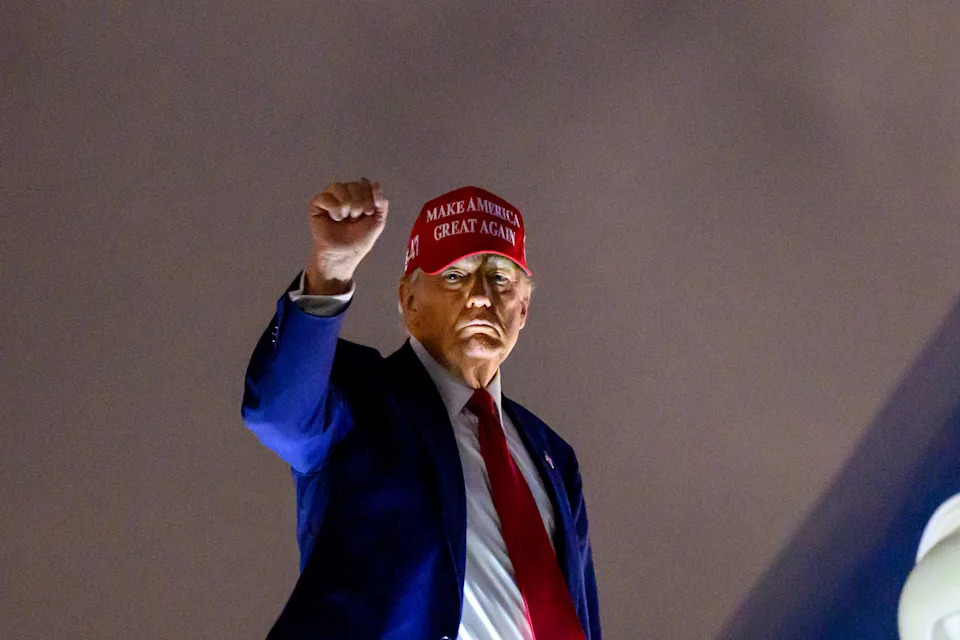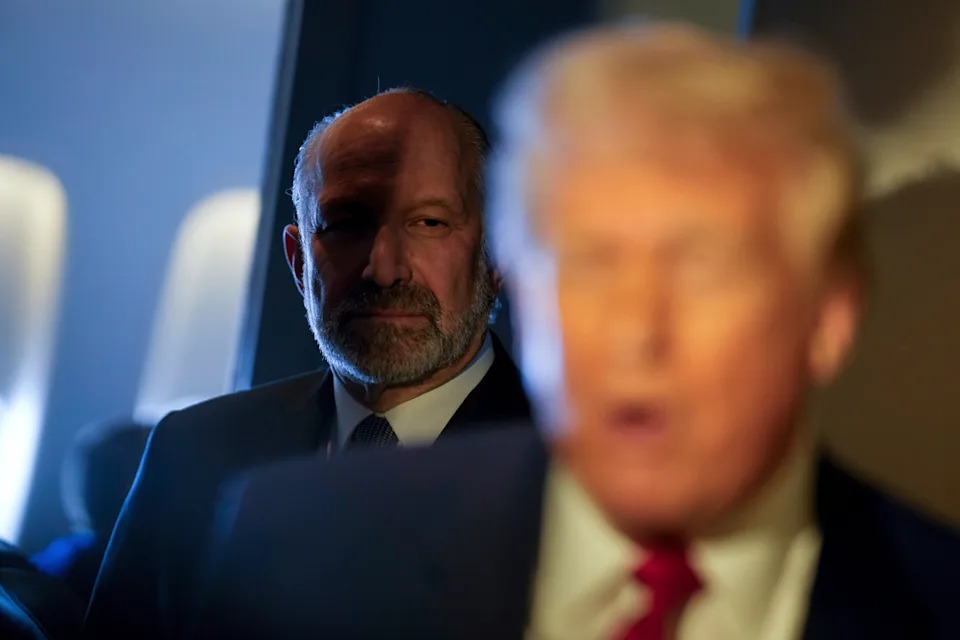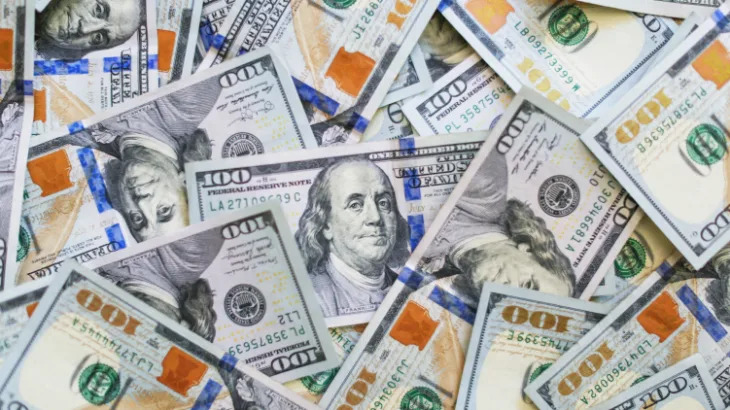Donald Trump and his team offered an array of explanations for falling markets this past week, often trying to focus on other factors beyond the issue that appears to clearly be front of mind for investors: the president's sweeping reciprocal tariff plans .
Trump's message is that tariffs are best understood as the force that will instead steady America's economic ship. That's why markets eventually "are going to boom," as he put it Thursday after another sell-off. Trump then told investors Friday that "my policies will never change" and that "only the weak will fail!"
Other officials from the president's team have often tried to take a similar approach, repeatedly suggesting that the current market pain is just "a snapshot in time" or noting that they expected some of this week's stock losses.
They have also often tried a pivot of sorts, pointing to narrower and often non-tariff-related reasons that they said could instead be behind the sell-off — from technology stock weakness to foreign AI to the legacy of former President Joe Biden.
In one notable example, Treasury Secretary Scott Bessent has described the sell-off in stocks as "more a Mag Seven problem, and not a MAGA problem" in at least three different interviews with Fox, Bloomberg, and Tucker Carlson. He was referring to the "Magnificent Seven" tech stocks that have seen deep recent losses alongside the rest of the market.

White House senior counselor for trade and manufacturing Peter Navarro echoed the argument on CNBC this week . "In the Biden regime, the S&P 500 went up but it went up because of seven companies," he said, claiming that other companies stagnated.
"In the Trump bullish market, which is beginning now, it's going to be a lot of companies," he predicted.
This suggestion that observers should look elsewhere comes as the economic effects of Trump's tariffs are increasingly apparent in their own right, helping to drive markets down this past week by the largest amount since 2020 as COVID-19 first ravaged the economy .
It also comes as the economic alarm bells around tariffs ring even louder, with Federal Reserve Chair Jerome Powell offering Friday that the inflationary effects of tariffs "could be more persistent."
Read more: What Trump's tariffs mean for the economy and your wallet
The continued selling on Friday even came as a jobs report offered a welcome surprise for the economy , with data showing a higher-than-expected 228,000 new jobs were created in March.
An 'an idiosyncratic tech sell-off' and other explanations
Trump and his advisers spent time this past week offering a range of explanations for the market turmoil beyond tariffs.
Bessent repeatedly focused on DeepSeek, a Chinese artificial intelligence company, to make the case, as he put it on Fox, that "a lot of what we have seen has been just an idiosyncratic tech sell-off."
Reports of advancements at that AI company did spark a market sell-off in late January , but that was followed by price increases, as the market then peaked on Feb. 19.
Another common argument from Trump's team has been that market weakness is essentially Biden's fault, that the US was heading for a financial crisis and it fell to Trump to administer the tough medicine.
"This is a big change. I'm not going to shy away from it," Vice President JD Vance said on Fox News. He then added the change was needed and that "we cannot keep going down the Joe Biden globalist pathway."
Trump himself offered an analogy that his tariffs and the unrest around them were akin to "when a patient gets operated on and it's a big thing."
These arguments emerged as Trump officials were questioned again and again on why the markets have turned so deeply against Trump's tariff plans.
"Of course, there is going to be some market volatility," said Stephen Miran, the chair of Trump's Council of Economic Advisers in a Bloomberg appearance on Friday. He added a promise that "at the end of that, things are going to be materially better."
Read more: The latest news and updates on Trump's tariffs
Other cases put forth this past week ranged from hints by some that negotiations will bring relief in the weeks ahead to a case that only foreign markets should be selling off as trading imbalances propping up foreign companies are being taken away.
"While certainly, the economy will be adjusting, the negotiations will continue," Secretary of Agriculture Brooke Rollins noted in an appearance focused on the effects on farmers.
A question of 'transitory' stock turmoil (and inflation effects)
But perhaps the core argument from Trump and his team was that the ill effects from recent actions are all temporary and that new investments into the country will soon be felt and quickly make the current unrest a memory.
"You're going to get that starting in the fourth quarter," promised Commerce Secretary Howard Lutnick on CNN this week. "And that's going to drive this US economy."
"Where we're going," he added, "is our markets are going to be up."

The case from Trump and his team has included both inflation and market sell-offs, essentially arguing that both are transitory.
"We are putting ourselves back onto a sound trajectory," Bessent added on Fox. The Treasury secretary also touted slow-moving tax talks this past week as a way to restart economic optimism if that effort can come together by the administration's goal of early this summer.
Some have suggested that the transitory effects are already receding, with Navarro noting Thursday afternoon on CNBC that he used to commentate on market moves and temporarily putting back on his pundit hat to say that technicians are suggesting "we are at or near bottom; they're probably right."
But stocks fell even more sharply on Friday as comments like those from Powell increasingly made clear Trump's planned tariffs are exceeding expectations.
Their economic effects, Powell said, "will include higher inflation and slower growth."
Other economic observers have worried that the economy is dangerously close to a recession after the bigger-than-expected tariff rollout of recent days.
"Hang tough," President Trump shot back on Friday. "We can't lose."
Ben Werschkul is a Washington correspondent for Yahoo Finance.





